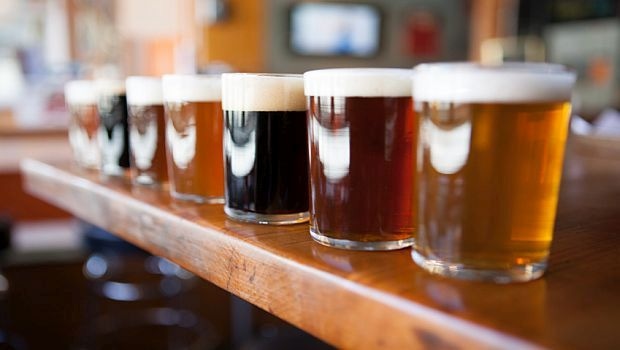In what may go down as the biggest deal in the global food and beverage market, SABMiller has accepted Anheuser-Busch InBev’s agreement in principle to purchase the beverage company for an estimated $104 billion. The blockbuster deal would create the world’s largest beverage company with combined revenues of approximately $73.5 billion globally.
October 13, 2015

In what may go down as the biggest deal in the global food and beverage market, SABMiller has accepted Anheuser-Busch InBev’s agreement in principle to purchase the beverage company for an estimated $104 billion. The all-cash agreement comes after four rejected takeover bids.
If approved by international regulatory bodies, the deal would be the largest acquisition in the global beverage market. Analysts have speculated that one in three beers sold globally would be owned by AB-InBev. This deal comes less that one year after the nearly $54-billion monster acquisition of Kraft Foods Group by H.J. Heinz Company that formed the third-largest food and beverage company in North America and the fifth-largest in the world.
So what does the merging of two global powerhouses mean to the global beverage industry? The blockbuster deal would create the world’s largest beverage company with combined revenues of approximately $73.5 billion globally, according to their respective investor information.
In theory, No. 1 AB InBev’s buyout of No. 2 SABMiller would allow both companies to eliminate their largest source of competition while combining the distribution outreach of their product portfolios in the process, said IBISWorld Beer and Spirits Sector Analyst Nick Petrillo. While redundancies along the supply chain may need to be eliminated along the way, major mergers have proven to be a more efficient strategy for many alcoholic beverage companies.
Petrillo went on to say the acquisition is a new high for the Global Beer Manufacturers industry, which has struggled over the past decade with declining per capita beer consumption and relatively flat volume growth across North American and European markets. Although the specifics of the deal have not been disclosed, it is likely that antitrust concerns, particularly from the U.S. Department of Justice, will require that SABMiller sells its stake in its North American MillerCoors joint venture with Molson Coors.
AB InBev is the leading global brewer and one of the world’s top five consumer products companies. The company’s portfolio of more than 200 beer brands includes global brands Budweiser®, Corona® and Stella Artois®; international brands Beck’s®, Leffe®, and Hoegaarden®; and local champions Bud Light®, Skol®, Brahma®, Antarctica®, Quilmes®, Victoria®, Modelo Especial®, Michelob Ultra®, Harbin®, Sedrin®, Klinskoye®, Sibirskaya Korona®, Chernigivske®, Cass® and Jupiler®. AB InBev has approximately 155,000 employees based in 25 countries worldwide. In 2014, AB InBev realized $47.1 billion in revenues.
SABMiller plc is the world’s second-largest brewing company and one of the world’s largest bottlers of Coca-Cola drinks. The company also produces a portfolio of wholly-owned soft drinks brands. SABMiller operates in more than 80 countries with approximately 70,000 employees. Its brand portfolio includes leading local brands such as Aguila (Colombia), Castle (South Africa), Miller Lite (USA), Snow (China), Victoria Bitter (Australia) and Tyskie (Poland) as well as global brands such as Pilsner Urquell, Peroni Nastro Azzurro, Miller Genuine Draft and Grolsch. In the year ended March, 31, 2015, SABMiller sold 324 million hectolitres of lager, soft drinks and other alcoholic beverages, generating revenues of $26.4 billion.
You May Also Like




.png?width=800&auto=webp&quality=80&disable=upscale)